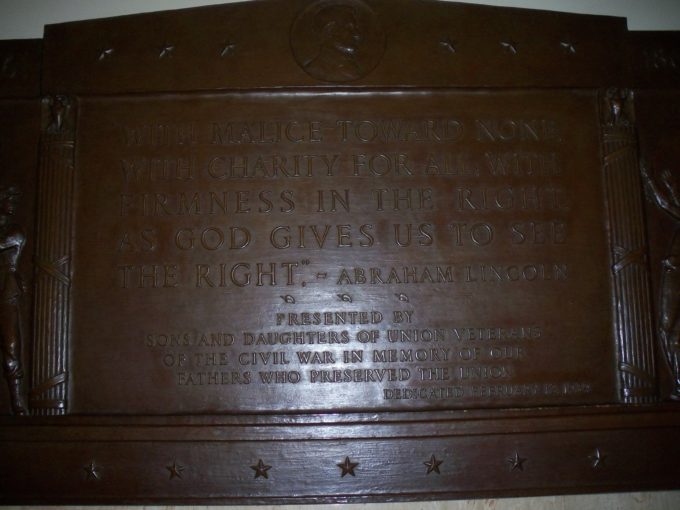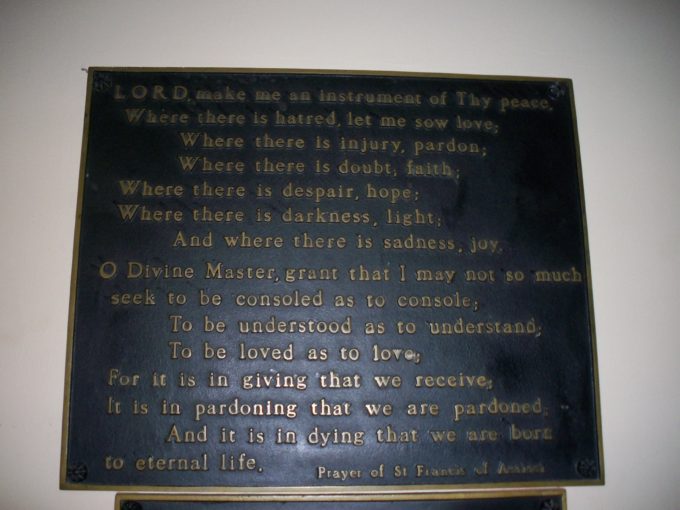
Friday, 24 July 2020
…as Sodom and Gomorrah, and the cities around them in a similar manner to these, having given themselves over to sexual immorality and gone after strange flesh, are set forth as an example, suffering the vengeance of eternal fire. Jude -7
As noted, Jude has discussed two categories of sin which result in the judgment of God. The first was unbelief – Israel in the wilderness. The second was pride – the fallen angels. The third is now introduced, the sexual sin of Sodom and Gomorrah. His words begin with, “as Sodom and Gomorrah, and the cities around them in a similar manner to these.”
The account of Sodom and Gomorrah is found especially in Genesis 18 & 19. However, it is mentioned throughout the rest of Scripture, being used as an example of what is perverse and deserving of God’s judgment.
Understanding this, the word “as” is not tying the sexual sin of Sodom and Gomorrah to the same type of sin being committed by the angels (leaving their proper domain). Rather, it is referring to the punishment that will be noted in this verse, corresponding to the just judgment to be executed upon the angels (verse 6) and the destruction of those who did not believe (verse 5).
The point of what is said in these verses is to highlight the just nature of God’s judgment upon offenders. With the historical record of punishment laid out, those at Jude’s time, and indeed all of the church age, could expect nothing different if they committed such sins. The list of sins now includes sexual immorality, as Jude says, “having given themselves over to sexual immorality.”
As noted, the sins of Sodom are noted in Genesis 18 & 19. In Genesis 18, the Lord said to Abraham that “the outcry against Sodom and Gomorrah is great, and because their sin is very grave.” The people had turned to complete wickedness, and the Lord determined to destroy them. Genesis 19 gives exacting details of the particular nature of the sins of the people, specifically highlighting sexual immorality. But in that category, the sin of homosexuality is especially highlighted. As Jude says, “and gone after strange flesh.”
The meaning is that there is a normal order to sexual relationships – they are to be between a man and a woman. However, Sodom and Gomorrah had twisted this, and were engaging in sex between men. It is the perverse sin described in detail by Paul in Romans 1:18-25. Elsewhere, references to the perversion of homosexuality are mentioned as well.
Jude next says of them that they “are set forth as an example.” The verb Jude uses is explained by Vincent’s Word Studies, saying, “The verb means, literally, to lie exposed. Used of meats on the table ready for the guests; of a corpse laid out for burial; of a question under discussion. Thus, the corruption and punishment of the cities of the plain are laid out in plain sight.”
What happened to Sodom and Gomorrah is set before us in the biblical narrative to instruct us. It is plainly laid out so that any who hear of what occurred with be apprised that acting in the same manner will lead to a corresponding punishment for those who are unwilling to turn away from their vile actions.
This is one of the main points of everything that is recorded in Scripture. As Paul says to Timothy –
“All Scripture is given by inspiration of God, and is profitable for doctrine, for reproof, for correction, for instruction in righteousness, 17 that the man of God may be complete, thoroughly equipped for every good work.” 2 Timothy 3:16, 17
The words of Scripture are intended to instruct us in righteousness and to correct us. If we are unwilling to heed what is written, then whatever occurred to those in the past is what we should expect as well. As Jude says of those in Sodom and Gomorrah, they are “suffering the vengeance of eternal fire.”
The word “vengeance” is not really appropriate. God is not vengeful. Rather, such sins reflect a violation of His just, righteous, and holy character. The punishment which is brought upon offenders is what they rightfully deserve based on this. Therefore, translating this as “punishment of eternal fire” is much more appropriate.
The example of Sodom and Gomorrah is intended to show us that the destruction by fire that came upon them is what will also come upon those who conduct their lives in such an unholy manner. That takes us back to the words of the earlier clause which said, “in a manner similar to these.” It was referring to the punishment Sodom and Gomorrah suffered.
We have seen in this and the previous two verses that those who fail to believe will be destroyed. Those who are prideful in life will be kept in chains of darkness, reserved for the judgment of the great day. And those who conduct their lives in unholy sexual immorality will suffer the eternal fires of God’s punishment. There is nothing arbitrary or vindictive about what God does. These actions come as a response to our violation of His glorious character. Thus, they are rightly deserved.
Life application: This is the third example of judgment presented by Jude. The first was the disbelieving people who came out of Egypt, the second was the disobedient angels who left their heavenly station (based on pride), and the third noted here concern the debauched and perverted souls who have given themselves over to sexual immorality. All three are common in today’s church, but the last noted is especially heinous because it involves the first two sins, disbelieving and disobedience, as well as the third, debauchery. Paul says this about sexual immorality –
“Flee sexual immorality. Every sin that a man does is outside the body, but he who commits sexual immorality sins against his own body.” 1 Corinthians 6:18
Jude takes this example and stresses it in an even more poignant way. He specifically cites going “after strange flesh.” This is referring to homosexuality. That this is worthy of “the vengeance of eternal fire” is noted not only in the Law of Moses, but it predates the law, having been cited prior to the giving of the law in the account of Sodom and Gomorrah. Paul, in Romans 1, says that it is universally understood to be perverted and that we must “suppress the truth” in order to commit such an act. The term Jude uses today is ekporneusasai. It is a term which intensifies the concept of sexual sin because of its exceptionally perverted nature.
Churches that fragrantly flaunt homosexual behavior are facing self-condemnation right beside the other unregenerate people of the world. What God has ordained in the union of man and woman cannot be shunned because of our own perverted lusts and desires without the expectation of the most severe and eternal punishment.
Heavenly Father, who are we to shake our fists in Your face and upturn that which You have ordained and sanctified concerning intimate relations? But we as humans do, and then we refuse to repent of our actions. Lord, may we turn away from such things and back to what You have revealed concerning what is right and proper. There is that which is in accord with Your word – the loving and blessed relationship of a man and a woman in marriage – and there is all else. May we wake up to the truth of Your word, applying its morals to our lives before You. Amen.




